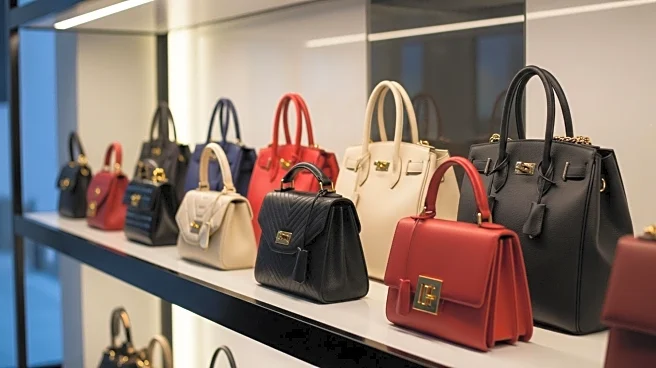What's Happening?
The U.S. tariffs of 15% on imports from the European Union have led to increased demand for secondhand luxury handbags as consumers seek more affordable alternatives. Resale platforms are experiencing growth as shoppers look for savings, authenticity, and sustainability. Brands like Hermès, Louis Vuitton, and Chanel have raised prices, making pre-owned luxury items more accessible. Despite inflationary pressures, average selling prices on resale markets have remained stable, benefiting platforms like Vestiaire Collective and Fashionphile.
Why It's Important?
The shift towards secondhand luxury goods reflects changing consumer behavior driven by economic factors such as tariffs and price hikes. This trend could impact the luxury retail industry, as consumers opt for pre-owned items over new purchases. Resale platforms are well-positioned to capture this market shift, potentially leading to increased competition and innovation in the luxury goods sector.
What's Next?
As tariffs continue to affect retail pricing, resale platforms may see further growth. The demand for secondhand luxury goods is expected to remain stable, with potential increases in listings and purchases as consumers adapt to market changes. The luxury industry may need to address pricing strategies and explore new ways to engage consumers.










